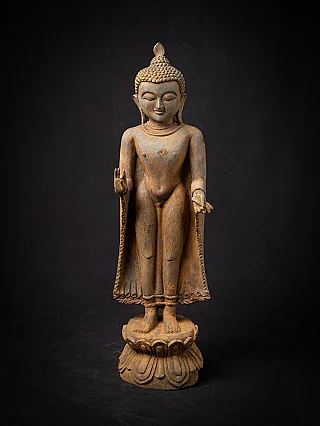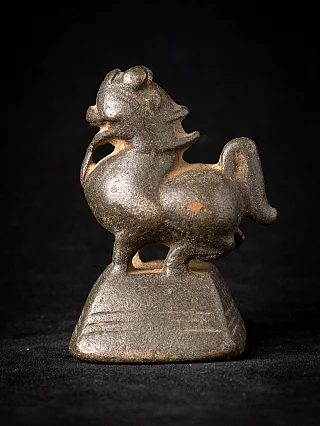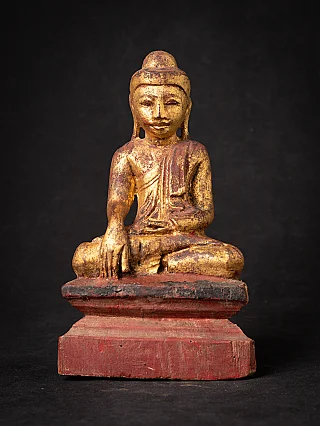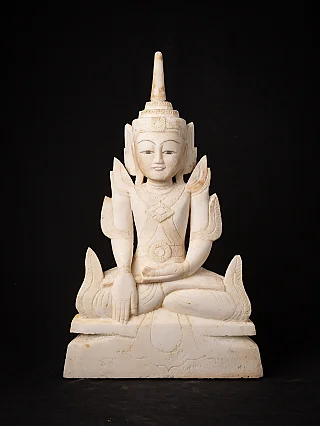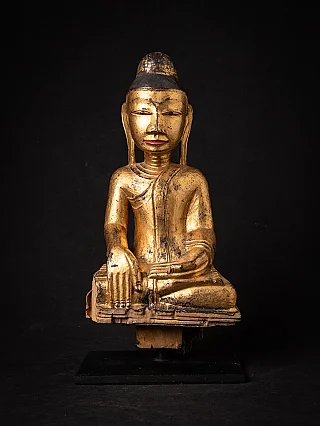Compassion and Altruism: Promoting Positive Mental Health in Buddhism
Author : Peter Vredeveld

The society where we stand today is full of competition, stress, and anxiety, which has led to a massive rise in mental health issues. Understanding mental health, promoting its importance, and devising novel and practical strategies for its prevention are now requirements. Buddhism is an essential source of knowledge and direction when it comes to such mental health difficulties. As we know, the main principle of Buddhism that highly contributes to positive mental health is compassion, which teaches about the understanding of the suffering of others. Along with compassion, the concept of altruism, or selfless concern about others, is also an essential principle in Buddhism. This article defines the role of compassion and altruism in promoting positive mental health in Buddhism.
Explore our Buddha statues for peace of mind
Compassion in Buddhism

One of the fundamental concepts of Buddhism is compassion, or "karuna," as it is known in Sanskrit. It is also regarded as one of the Four Brahmaviharas (four divine abodes). It involves empathizing with others, understanding their suffering, and feeling a deep desire to help them with their suffering. Compassion is considered an essential part of the way to enlightenment. It is also believed to lead us to a positive mindset, reduce anxiety and stress, and promote happiness and well-being.
Altruism in Buddhism
Altruism is another fundamental concept in Buddhism, alongside compassion. It involves selfless acts performed for the betterment of others, putting their needs before our own and helping without expecting anything in return. In Buddhism, altruism is related to interconnectedness. All living beings are interconnected and interdependent on one another, resulting in a higher sense of compassion and generosity.
As per the teaching of Buddhism, altruism can have multiple benefits for both the giver and the receiver. It is understood that altruism can develop a sense of compassion, reduce negative emotions like anger, and help to develop the habit of selflessness, ultimately leading to inner peace and contentment.
The Benefits of Compassion and Altruism for Mental Health
The cultivation of compassion and altruism has numerous benefits for mental health. One of the key benefits of compassion is that it promotes social connectedness. When individuals connect with others and feel a sense of belonging, they are more likely to experience positive mental health outcomes. Similarly, altruistic behavior has been linked to increased happiness and life satisfaction. By helping others and putting their needs before one's own, individuals can experience a sense of purpose and fulfillment.
Empathy is another essential component of compassion and altruism that can contribute to positive mental health. By developing empathy, individuals can better understand and connect with the experiences of others. This can lead to greater social awareness and a sense of shared humanity. A sense of purpose and connection to others is crucial for positive mental health outcomes.
Incorporating Compassion and Altruism into Daily Life
Cultivating compassion and altruism doesn't have to be complicated or time-consuming. Simple acts of kindness, such as offering a smile or holding the door open for someone to a stranger, can promote compassion and altruism. In addition, individuals can be more aware of their biases and prejudices and work to overcome them. By stepping outside of one's self-interest and putting the needs of others first, individuals can develop a greater sense of compassion and altruism.
The Role of Compassion and Altruism in Society
The principles of compassion and altruism can also be applied to society as a whole. Individuals can create a more compassionate and connected world by promoting greater social harmony and well-being. This includes promoting policies and practices based on empathy, kindness, and altruism. Examples include supporting programs that promote social justice, environmental protection, and the well-being of vulnerable populations. By working together to create a more compassionate society, individuals can contribute to positive mental health outcomes for themselves and others.
Compassion and Altruism in Buddhism's Mindfulness Practices
One of the key ways that Buddhism promotes the cultivation of compassion and altruism is through mindfulness practices. Mindfulness involves being present in the moment and cultivating awareness of one's thoughts, emotions, and physical sensations. Through mindfulness practices, individuals can develop greater empathy and compassion for themselves and others. This includes developing a greater awareness of one's biases and prejudices and working to overcome them.
Another key aspect of mindfulness practices in Buddhism is the development of loving-kindness. Loving-kindness meditation involves directing well-wishes towards oneself and others. Individuals can develop a greater sense of compassion and altruism by cultivating love and kindness towards all beings.
Conclusion
In conclusion, compassion and altruism are essential in promoting positive mental health in Buddhism. By cultivating these qualities through mindfulness practices and daily actions, individuals can experience numerous benefits for their well-being and the well-being of others. Furthermore, individuals can create a more compassionate and connected world by promoting greater social harmony and well-being. The principles of compassion and altruism apply to Buddhism and all individuals seeking to promote positive mental health outcomes in themselves and society.
Share this page
























